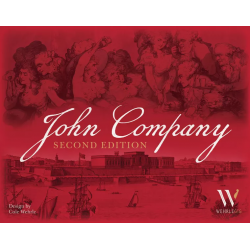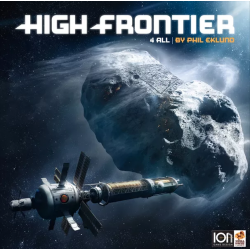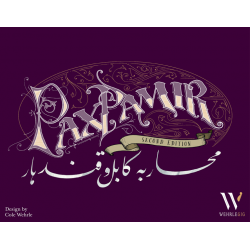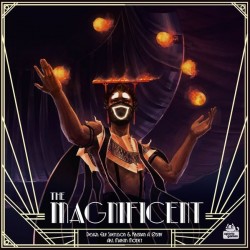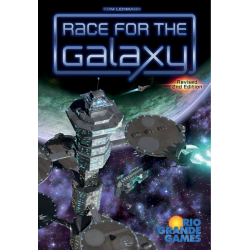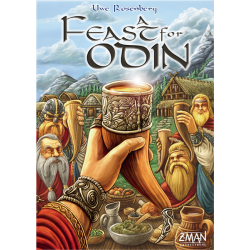No products in the cart.
Active filters
Terminus
You and your competitors’ transit companies have been hired by the city to build new subway lines and commercial developments to improve the city\'s bottom line.
John Company: Second Edition
In John Company, players assume the roles of ambitious families attempting to use the British East India Company for personal gain. The game begins in the early eighteenth-century, when the Company has a weak foothold on the subcontinent. Over the course of the game, the Company might grow into the most powerful and insidious corporation in the world or collapse under the weight of its own ambition.
High Frontier 4 All
This is the 4th ed of Phil Eklund\'s signature game High Frontier. It started with Rocket Flight (1999), a game with the vision to let "Each player start as a spacefaring company in the year 2020 trying to make a profit in trade and technology development." Now that we are at that year, High Frontier has evolved into a modular system open to enthusiasts to keep it updated ever farther into the future.
Pax Pamir: Second Edition
In Pax Pamir, players assume the role of nineteenth century Afghan leaders attempting to forge a new state after the collapse of the Durrani Empire. Western histories often call this period "The Great Game" because of the role played by the Europeans who attempted to use central Asia as a theater for their own rivalries. In this game, those empires are viewed strictly from the perspective of the Afghans who sought to manipulate the interloping ferengi (foreigners) for their own purposes.
The Magnificent
The Magnificent is a tightly designed Eurogame from the creators of Santa Maria set in a mystical world beautifully illustrated by French artist Martin Mottet.
Race for the Galaxy
Race for the Galaxy
In the card game Race for the Galaxy, players build galactic civilizations by playing game cards in front of them that represent worlds or technical and social developments. Some worlds allow players to produce goods, which can be consumed later to gain either card draws or victory points when the appropriate technologies are available to them. These are mainly provided by the developments and worlds that are not able to produce, but the fancier production worlds also give these bonuses.
Feast for Odin
Using the central board in A Feast for Odin, players have to hunt, gather basic materials, refine those materials, develop their production-buildings, build/buy ships, and raid settlements.
The resulting earnings are placed on the players\' board in the best possible pattern to produce income and (later) victory points.


